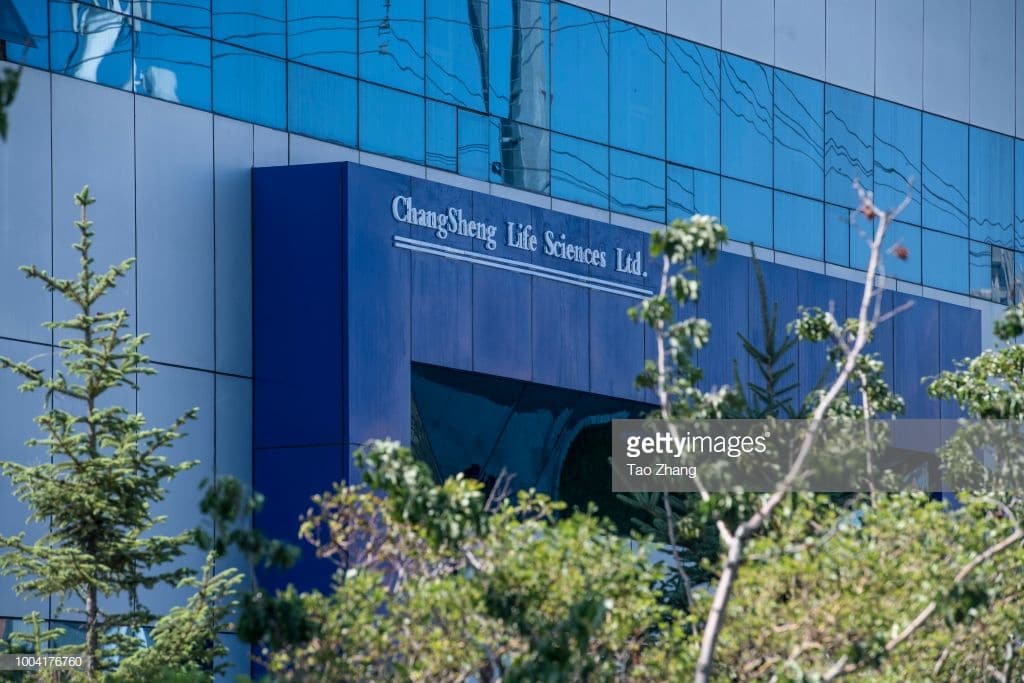One of the largest vaccine manufacturers in the country is suspected of changing production and quality control data. The caso è l’ultimo di una serie di irregolarità nell’industria farmaceutica cinese.
Por Deutsche Welle- 07/23/2018
La polizia cinese ha aperto un’inchiesta sulla società farmaceutica Changsheng Biotechnology Co., uno dei maggiori produttori di vaccini del paese. L’azienda è sospettata di aver falsificato sia i registri sulla produzione di dosi di vaccino antirabbico sia i controlli di qualità.
Il presidente e altri quattro alti dirigenti della compagnia sono gli obiettivi dell’indagine. According to the Chinese Food and Drug Administration, in addition to falsifying documents, the pharmaceutical company tampered with production process parameters and equipment.
Anche se non ci sono segnalazioni di persone danneggiate dai vaccini contraffatti, l’agenzia ha ordinato la sospensione della produzione di vaccini per uso umano da parte della società dopo aver trovato campioni rimanenti congelati. In China, the rabies vaccine is given to babies from three months onwards.
Changsheng Biotechnology apologized on Monday for the irregularities and said the authorities halting vaccine production would have a significant impact on its finances.
After emerging last Friday, the case caused a stir in social networks. A hashtag related to the scandal was among the country's top topics, despite reports of censorship. Le autorità sapevano da mesi che c’erano delle irregolarità nella compagnia.
Il primo ministro cinese Li Keqiang ha chiesto un’indagine immediata sul caso di domenica e ha sottolineato che la popolazione aveva bisogno di informazioni chiare. “Terremo risolutamente la repressione sugli atti illeciti e criminali che mettono in pericolo la sicurezza della vita delle persone”, ha aggiunto.
Durante un viaggio ufficiale in Africa, il presidente cinese Xi Jinping ha ribadito le parole del primo ministro e ha chiesto un’indagine completa e una severa punizione per i responsabili. “La produzione illegale di vaccini da parte della Biotecnologia di Changsheng è deprecabile e scioccante”, ha affermato.
Il caso è l’ultimo di una serie di scandali che hanno colpito l’industria farmaceutica cinese. In 2016, the authorities announced that they had dismantled a network that had been illegally producing the vaccines since 2011. The doses were not transported in adequate conditions and could, in addition to not working, also cause death on the market.
A more serious episode occurred in 2008, when at least six children died and 300,000 were affected by melamine contamination of infant formula.
La scorsa settimana, i regolatori europei hanno anche scoperto che un farmaco per il cuore e la pressione del sangue [n.d.r.: valsartan] prodotto dal produttore cinese di farmaci Zhejiang Huahai e venduto in Europa può contenere un’impurità cancerogena. The substance would be present in the medicine since 2012.
Bloomberg: Changsheng Bio-Technology Co., Ltd. exports its products to Southeast Asia, the Middle East, Africa, India, Russia, Egypt and Central and South America. The company was founded in 1992 and is headquartered in Changchun, China. Changsheng Bio-Technology Co., Ltd. is a subsidiary of Changchun High & New Technology Industry (Group) Inc.
China, few controls and corruption behind the vaccine scandals
The scandal that has engulfed Chinese healthcare and pharmaceutical companies is making more and more noise. Industry experts point the finger at corruption within the health system and the lack of controls. President Xi Jinping calls for certain and severe penalties for those responsible. For eight years there have been fatal accidents related to the sector.
Pechino (AsiaNews/Agenzie) – Scarso controllo e corruzione: secondo le autorità competenti è questo il motivo dei continui scandali che stanno travolgendo la sanità cinese.
The National Institutes for Food and Drug Control is the agency that certifies the quality of medicines and food products. A former employee
Changsheng Biotech, at the center of the scandal these days, is the second national producer of vaccines. The unannounced inspection in recent days revealed that the company was providing false data on the production and testing of rabies and diphtheria, pertussis, and tetanus (DPT) vaccines.
Il primo ministro Li Keqiang e il presidente Xi Jinping hanno chiesto un’inchiesta immediata sui vaccini difettosi, affermando che le case farmaceutiche hanno attraversato una “linea morale”.
Nel frattempo la presidente della società, Gao Junfang, e quattro alti dirigenti sono stati fermati dalla polizia per essere interrogati. La Changsheng Biotech ha perso quasi la metà del suo valore azionario da quando la Drug Administration ha scoperto la falsificazione dei dati. L’azienda, con sede a Changchun, Jilin, è stata il secondo più grande fornitore cinese di vaccini contro la rabbia e la varicella lo scorso anno. L’azienda rifornisce i centri di approvvigionamento governativi, che a loro volta distribuiscono i vaccini al pubblico. In Cina, i vaccini obbligatori come il Dpt vengono somministrati ai bambini nell’ambito di un programma sanitario sponsorizzato dallo Stato presso ospedali e centri di controllo delle malattie.
Lo scandalo colpisce però anche i funzionari statali che dovrebbero fare operazioni di controllo. Le sentenze dei tribunali cinesi mostrano che i dipendenti governativi accettavano tangenti da centinaia di migliaia di yuan per approvare un vaccino. Alcuni funzionari del Centers for Disease Control (Cdc) hanno preso tangenti anche per introdurre vaccini. Uno di questi, che è stato identificato come “Xia” ha diretto il programma di vaccinazione nel distretto di Yuhua a Shijiazhuang, nella provincia dell’Hebei. In quell’occasione egli ha accettato 100mila yuan in tangenti da un’azienda che non era certificata per vendere vaccini.
In the last eight years, the vaccination scandals have followed one another almost without interruption. In March 2010, about 100 children in Shanxi Province died and others were permanently disabled as a result of vaccinations. In December 2013, 17 children in Sichuan died from a hepatitis B vaccine. The authorities denied linking the deaths to the vaccinations. In August 2014, entire batches of rabies vaccine contaminated with poisonous substances were found in Liaoning. Two years later, in Shandong, a pharmaceutical company distributed vaccines worth 260 million yuan nationwide without complying with proper refrigeration procedures.
